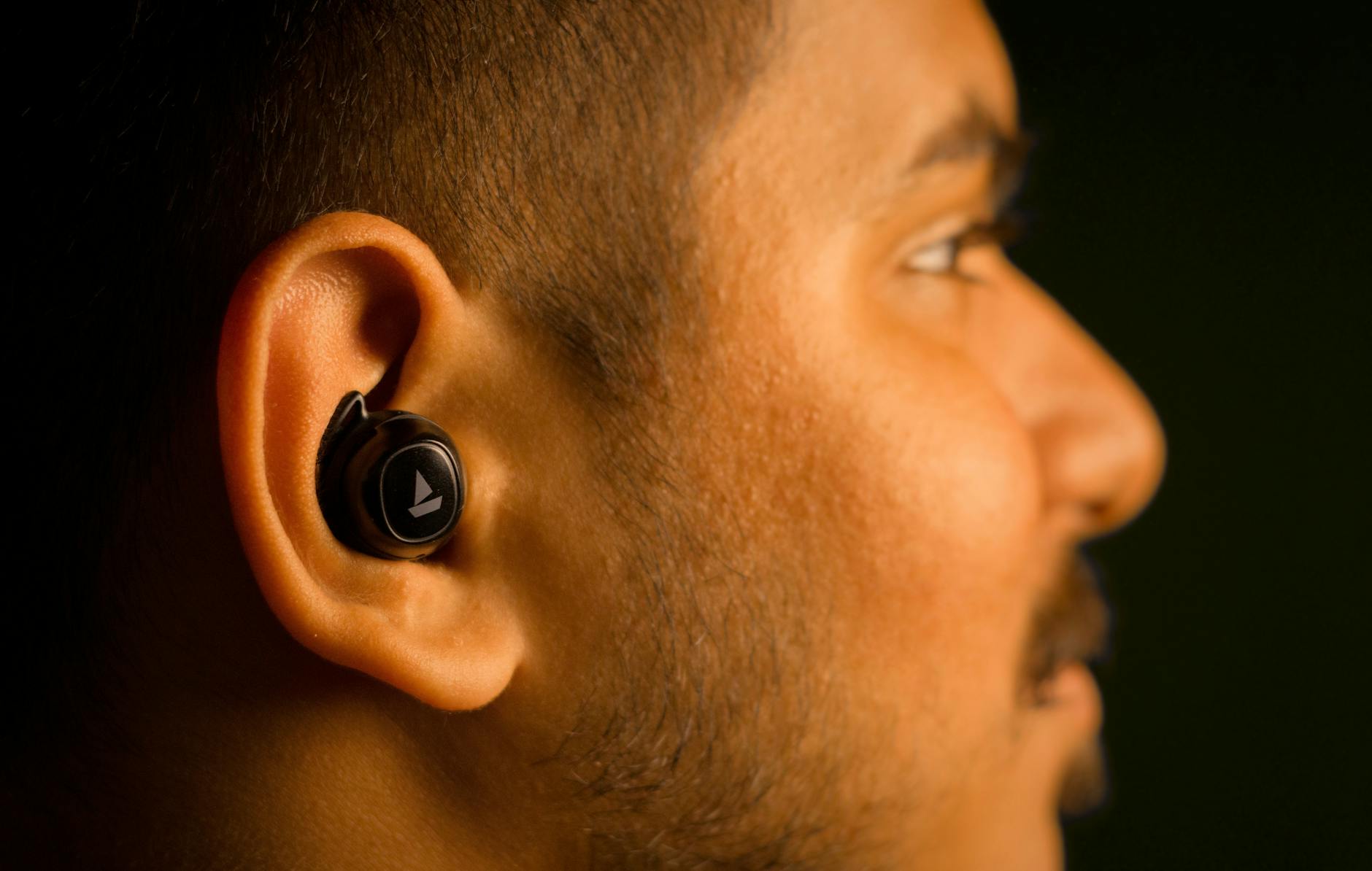Lede: Ever leave a restaurant or Zoom call feeling like your brain ran a marathon? That drained feeling isn’t just social overload—it can be listening overload. When ears don’t deliver a clean signal, the brain works overtime to fill in the gaps. Good news: you can lighten that load, feel sharper, and possibly support long‑term brain health.
Wait—what does hearing have to do with thinking?
Hearing isn’t just about your ears. It’s a team sport between your ears and your brain. Your ears capture sound; your brain turns it into meaning. When hearing loss is present—especially age‑related hearing loss (presbycusis)—speech becomes fuzzy. Your brain boosts attention, memory, and prediction to decode words. That extra work is called cognitive load.
Three pathways that link hearing and cognition
- Cognitive load: Constantly guessing at words diverts brain resources from comprehension, memory, and decision‑making. Over time, chronic overload can contribute to mental fatigue and reduce cognitive reserve.
- Auditory deprivation: When the brain receives less high‑quality sound, auditory areas can reorganize. Think “use it or lose it.” Treating hearing loss earlier helps keep those pathways engaged.
- Social connection: Struggling to hear can nudge you to opt out—fewer phone calls, fewer dinners, fewer laughs. Social isolation is a known risk factor for cognitive decline. Hearing well keeps you in the conversation.
What the evidence says (and what it doesn’t)
- Observational studies: Large population studies have linked untreated hearing loss with higher risk of cognitive decline and dementia. The worse the hearing, the higher the risk trend. Correlation doesn’t equal causation, but the association is consistent across studies.
- Modifiable risk factor: The Lancet Commission lists hearing loss in mid‑ to late life among the potentially modifiable risk factors for dementia. Translation: addressing hearing may help reduce risk at the population level.
- Randomized trial data: In 2023, the ACHIEVE study—funded by the U.S. National Institute on Aging—found that a hearing intervention (hearing aids plus communication counseling) slowed cognitive decline over three years in older adults at higher risk for dementia compared with a health‑education control. In lower‑risk groups, effects were smaller. Hearing care isn’t a cure‑all, but it’s promising, actionable, and safe.
Bottom line: Treating hearing loss can reduce day‑to‑day brain strain and may support long‑term cognitive health, especially if you’re at higher risk. It’s one important piece of a broader brain‑healthy lifestyle.
Signs your brain is doing your ears’ job
- You understand people better when you can see their lips.
- Group conversations feel exhausting or you need recovery time after social events.
- TV captions are always on; others say the volume is too loud.
- You say “Huh?” or “What?” often—especially in restaurants or on calls.
- Work meetings leave you mentally fried, even if the day wasn’t “hard.”
If these ring true, consider a professional hearing evaluation. You’re not committing to hearing aids—you’re gathering data about your ears and brain.
Your first step: get a baseline hearing test
A comprehensive hearing test (audiogram and speech testing) gives you and your clinicians a starting point. If you’re 50+, it’s reasonable to screen every 1–3 years—sooner if you notice changes.
- What to expect: Tone beeps, word recognition in quiet, sometimes in noise. Quick, painless, informative.
- Who to see: An audiologist for evaluation and guidance; an ENT (otologist/otolaryngologist) if there are medical red flags like sudden hearing loss, ear pain, drainage, or asymmetric hearing between ears.
Gentle nudge: An audiologist can translate your results into real‑world strategies and, if needed, walk you through hearing tech options that fit your life and budget.
Make listening easier today: lower the cognitive load
Tune your spaces
- Pick the spot: In restaurants, choose a corner or wall seat with your back to the room. Ask for quieter sections.
- Cut the reverb: At home, add soft furnishings (rugs, curtains, bookshelves) that soak up echo.
- Light helps hearing: Good lighting supports lip‑reading and facial cues—huge for comprehension.
Upgrade how you communicate
- Get attention first—say the person’s name before you speak.
- Speak naturally, not louder. Over‑projecting can distort speech sounds.
- Rephrase rather than repeat the same words; different sounds may be easier to catch.
- Use cues: “New topic,” “Key point,” “Numbers coming up.” Your brain loves structure.
Leverage smart tech (with or without hearing aids)
- Headsets with quality mics for calls and video meetings; use both ears when possible.
- Live captions on Zoom/Teams and TV. They’re there—turn them on without apology.
- Personal amplifiers/remote mics that place a microphone near the talker and stream directly to your ears—hugely helpful in noise.
If you use hearing aids, make them brain‑friendly
- Get fit well: A good fitting and verification process helps ensure speech sounds are clear without harshness. If words still blur, go back—fine‑tuning is normal.
- Own multiple programs: Ask for a “restaurants,” “music,” and “meeting” program. Quick program switches can slash listening effort.
- Use accessories: Neck‑worn or clip‑on remote microphones can be game‑changers in classes, houses of worship, or noisy dinners.
- Stream smart: Phone calls streamed to both ears improve clarity and reduce effort.
- Practice listening: Short, daily listening exercises or apps can help your brain adapt, improving speech‑in‑noise over time.
Pro tip: Tell your audiologist where listening feels hardest. “Noisy happy hours” is a better target than “just make it louder.”
Whole‑health moves that help ears and brain
- Protect from noise: Carry plug‑style hearing protection. Fitness classes, concerts, power tools, and stadiums often exceed safe levels.
- Move your body: Regular aerobic activity supports blood flow to the inner ear and the brain.
- Manage cardiovascular risks: Keep blood pressure, cholesterol, and blood sugar in range; what’s good for your heart is good for your hearing and cognition.
- Prioritize sleep: Poor sleep strains attention and memory—exactly what you need for listening.
- Stay social: Schedule low‑effort, high‑joy connection. Tea with a friend counts. So does a weekly game night.
- Mind medications: If you take long‑term high doses of certain pain relievers or other meds, ask your clinician about hearing‑safe strategies.
Myth‑busting: quick hits
- “Hearing aids will make my ears lazy.” Actually, treating loss keeps auditory pathways active. Untreated loss is what risks deprivation.
- “I’ll wait until it’s ‘bad enough.’” Earlier help is usually easier, cheaper, and more effective. Your brain adapts faster.
- “I hear fine—people just mumble.” Consonants carry meaning and are the first to fade with age. If “mumbles” are everywhere, get tested.
When to see a professional
- Right away if you have sudden hearing loss (over hours to days), one‑sided hearing loss, ear pain, drainage, spinning vertigo, or new facial weakness. Those are medical issues—seek urgent ENT care.
- Soon if conversations feel exhausting, you turn up the TV, or family is noticing. An audiologist can assess and map out options.
You deserve to hear your life without a constant mental workout. Lighten the cognitive load, stay engaged, and give your brain a break—it will thank you.
Further Reading
- Your Ears, Your Brain: The Cognitive Upside of Treating Hearing Loss (Hearing Loss) - Hear Your Step: The Hearing–Balance Link and How to Cut Fall Risk (Hearing Loss) - Menopause Can Shift Your Hearing: What to Watch, What to Do (Hearing Loss) - Ears to Brain: Do Hearing Aids Slow Cognitive Decline? (Research)Frequently Asked Questions
Will hearing aids prevent dementia?
No device can guarantee prevention. But treating hearing loss can reduce day‑to‑day listening effort, improve communication, and support social connection. In a large randomized trial (ACHIEVE), a hearing intervention slowed cognitive decline over three years in older adults at higher risk. Consider hearing care a practical, low‑risk piece of an overall brain‑healthy plan.
I have normal hearing on a test but struggle in noise. What can help?
This is common. Ask your audiologist about speech‑in‑noise testing, communication strategies, and tech like directional microphones, remote mics, and captioning. Training apps and small room changes (less echo, better lighting) also reduce effort. Even without hearing aids, targeted tools can make group conversations easier.
Can brain training replace hearing aids?
They do different jobs. Brain training can sharpen attention and listening strategies, but it can’t restore audibility of sounds your ears don’t deliver. If you have measurable hearing loss, properly fit hearing aids plus real‑world listening practice is the winning combination.
What if I also have tinnitus?
For many people with hearing loss, hearing aids soften tinnitus by improving access to ambient sound and speech. Add sound enrichment (soft background sound), stress management, and good sleep habits. An audiologist can tailor a plan; seek medical evaluation if tinnitus is sudden, one‑sided, or pulsing with your heartbeat.



